Here’s What You Love (and Hate) About Thanksgiving, Based On Your Myers-Briggs® Personality Type
Table of contents
Estimated reading time: 14 minutes
The ENFP
Hate: Planning things out ahead of time and awkward conversations with toxic relatives.
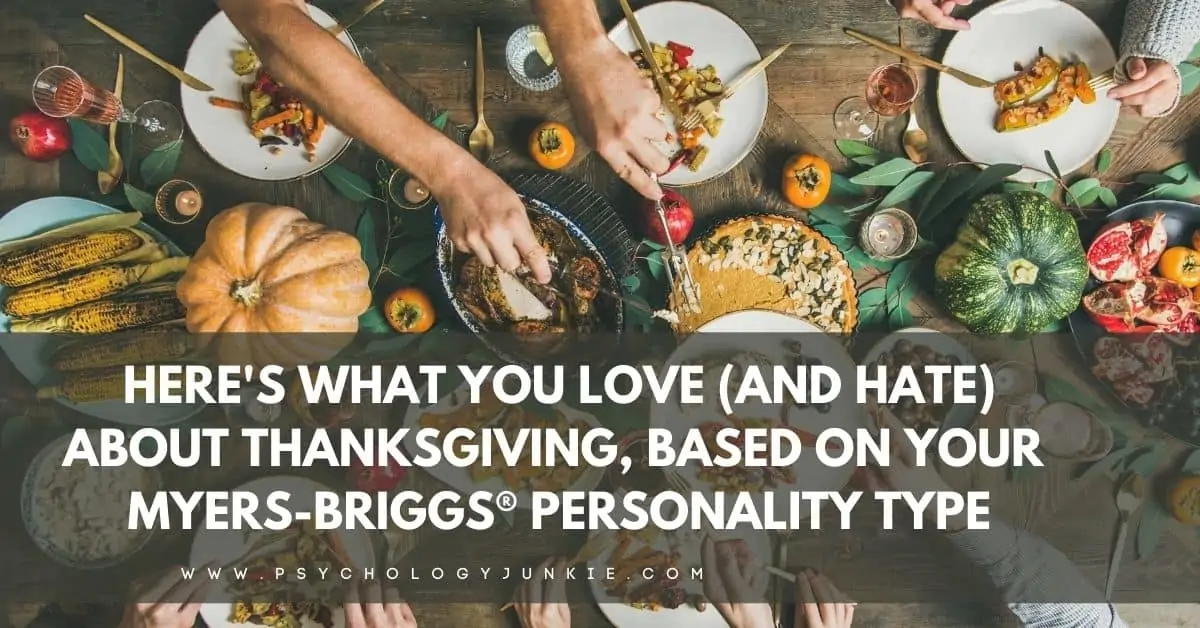
Love: When done right, ENFPs love the focus on gratitude, gratefulness, and joy. Plus who doesn’t like pie?
For ENFPs, the joy of the Thanksgiving holiday is largely dependent on who it’s spent with. The obligatory social gestures and niceties involved can be satisfying with trusted family members and exhausting with people with whom they have a bad history. Even if the ENFP has a close family, many of them loathe the idea of having to plan and prepare for this holiday months in advance. It’s a holiday that is supposed to be about being present in the moment and celebrating with loved ones, yet many ENFPs find themselves having to deal with endless dishes and chores that eat into the time they could be spending interacting with others.
On the flip side, ENFPs love the focus on gratitude, gratefulness, and joy. Being able to connect over meaningful conversation, share about significant moments in their lives, and play creative games allows them to laugh and bond with people they love in memorable ways.
Read This Next: 24 Signs That You’re an ENFP, the Visionary Personality Type
The ENTP
Hate: Getting interrogated at the dinner table and being expected to meet ridiculous social expectations.
Love: Cracking irreverent jokes at the dinner table and startling everyone with thought-provoking, controversial questions.
ENTPs can enjoy Thanksgiving if they’re not getting roped into all the planning, preparing, and other obligations inherent to the holiday. They love the time spent with their family as long as their family is willing to take a joke, let loose, and actually have some engaging dialogue. All too often, conversations around the dinner table are stilted, awkward, and focused on surface-level details. In these situations, ENTPs can be just the people you need to liven things up (even if that means cracking a joke that inevitably offends someone).
While ENTPs may seem not to care about propriety, they really do want their loved ones to enjoy the holiday. Loosening people up, sharing new ideas, and instigating some laughter or brainstorming keeps things from getting too dull and monotonous. Many family members will be secretly breathing a sigh of relief when the ENTP brings up a conversation topic that is actually interesting (although not entirely “vanilla”).
The INFP
Hate: The hypocrisy of having a day of thankfulness right before Black Friday. Also, the murky history of the holiday itself.
Love: The opportunity to quietly reflect on their lives and be grateful for significant moments, people, and experiences.
INFPs tend to be introverted and highly sensitive, so the bombardment of noise and busyness that comes along with Thanksgiving can be grueling for them. They dread having to sit through obligatory conversations with people they might not like or agree with. However, if they’re close with their families they enjoy the cozy atmosphere, the warm interactions, and hearty food. Some INFPs feel uncomfortable with Thanksgiving because of the messed-up history surrounding the holiday.
For these types, making the holiday meaningful in a way that is personally significant is crucial. They need to be able to put their own spin on the day, even if that just means going home after dinner and watching a favorite movie or taking their dog on a walk at the park. I’ve known several INFPs who have spent the day giving back, donating food to the homeless, or volunteering at animal shelters rather than indulging in feasting and football games. Others have watched movie marathons of their favorite holiday shows and decorated for Christmas!
Read This Next: 24 Signs That You’re an INFP, the Dreamer Personality Type
The INTP
Hate: All the forced niceties, small-talk, and socializing.
Love: Curling up on the couch and reading a book or watching “Charlie Brown’s Thanksgiving” to avoid socializing. And good food.
While INTPs crave spending time with loved ones, they detest small talk so Thanksgiving dinner can be excruciating for them. They loathe having to make mindless chit-chat with people, and the forced social niceties can be draining. That said, if the conversation is allowed to enter more thought-provoking territory, they may find themselves thrilled with the prospect. INTPs enjoy exploring topics that, to others, may seem polarizing or controversial. Conversation that is analytical and focused on sharing knowledge is inspiring to them. However, if there’s no such conversation happening, they’ll likely curl up with a good book in a quiet part of the house and read the day away with a cup of cider and a slice of pie.
Read This Next: 12 Fictional Characters You’ll Relate to if You’re an INTP
The ENFJ
Hate: The inconsistency of having a holiday of thankfulness that focuses primarily on spending money and gluttony. And people obsessing over football instead of bonding over meaningful conversation.
Love: When they’re able to take over hosting duties and ensure that everyone feels loved, heard, and included. Turning the holiday into a community-building experience.
ENFJs often find themselves conflicted over the Thanksgiving holiday. On one hand, they love the idea of being thankful, grateful, and giving back. On the other hand, they hate the idea of a holiday where people gorge themselves and turn their attention to material goods rather than each other. They hope for Thanksgiving to become a day about celebrating community, gratitude, and connection with loved ones. Talking about meaningful subjects, sharing each other’s hopes and dreams, and enjoying some good food around a bustling table excites them. But if the focus is primarily on football games, Black Friday, and stilted “appropriate” conversation they will likely lose interest (unless they are, in fact, a huge fan of football).
The ENTJ
Hate: Forced small-talk and out-of-control gluttony.
Love: Embracing the awkwardness and asking pointed, deep questions to the most uptight members of the family.
ENTJs can struggle with engaging in small talk, and that is what Thanksgiving dinner often consists of. They don’t care about Aunt Mary’s pet poodle or whether or not their cousin tried the new dry cleaners on Main Street. That said, ENTJs are accustomed to taking on the role of leader and will take it upon themselves to ensure that some productive conversation actually occurs. They may even channel their inner anthropologist and start asking some pretty weird questions. If all else fails, they’ll gather the kids for a rousing tabletop strategy game.
Read This Next: What ENTJs Do When They’re Stressed Out
The INFJ
Hate: Materialism coinciding with “gratefulness.” Awkward family dynamics. Insanely busy airports
Love: The extra time off work where they can retreat into themselves and practice some self-care. Cozy, inspirational time with loved ones.
While INFJs are often loving, sensitive individuals who enjoy spending time with people they care about, Thanksgiving can be an exercise in frustration for them. All the materialism, forced conversation, and sensory bombardment can be too much to bear. They may fantasize about an unplugged holiday where people spend time appreciating what they already have instead of acquiring more. However, for INFJs, Thanksgiving does offer some real benefits. For starters, the extra time off gives them a chance to rest in their thoughts and recharge. Spending quality time with loved ones also offers a feeling of warmth, festivity, and connection. Just don’t ask them to do the turkey trot!
Read This Next: 7 Things That INFJs Experience As Children
The INTJ
Hate: Forced small-talk, jam-packed airports, and watching the second-rate performers on the Macy’s Thanksgiving Day parade.
Love: Meaningful connections with people they love and the extra time off work to delve into their interests.
The stereotypical INTJ is not exactly the cheeriest of holiday guests. They’re known for having a love-hate relationship with socializing, and Thanksgiving can be particularly trying. The forced small-talk is often an endless stream of ego-stroking or mundane details about peoples’ personal lives that they never cared to know. Somehow this manages to go hand in hand with visions of over-sized football stadiums, ad campaigns featuring toddlers dressed as pilgrims, and exhausting plans to raid packed shopping malls the next day.
For someone who is an introvert’s introvert that can be too many sensory inputs to handle. While they enjoy spending quality time with loved ones, the socializing can be draining, especially if they have tense family relations. They may retreat to their room without saying goodbye or spend the holiday catching up on work. However, for INTJs Thanksgiving can offer something special if they manage to find one person to really connect with amid all of the chaos. If they can have conversation that is both meaningful and in-depth, it’s a holiday experience they won’t forget.
Read This Next: 24 Signs That You’re an INTJ, the Strategist Personality Type
The ESFP
Hate: Washing mounds of dirty dishes and dealing with judgmental family members.
Love: The chance to party with loved ones, eat comfort food, and get active outside for a game of football, tag, or frisbee.
The ESFP is an outgoing, people-oriented individual who enjoys spending time with family and friends. Thanksgiving can be a mixed bag of emotions for them, especially if they have a ton of hosting responsibilities. Washing piles of dishes and having to prepare/clean up after multiple meals is definitely not their idea of a good time. They also aren’t planners by nature and tend to detest being left with a lot of preparation and arrangements. As spontaneous types, they’d rather show up and “wing it” to make a special event rather than map out plans months in advance.
For the ESFP partaking in Thanksgiving is all about being with people they care about. If they have a good time, there’s no better holiday. Because they like to stay active, they keep the holiday from becoming too sedentary and dull. You can count on them to rouse everyone for a game of football or at least turn on some karaoke and encourage even the shyest member of the family to belt out their favorite tunes.
The ESTP
Hate: Too many rules, boredom, and the obligatory family politics.
Love: The chance to spend time with friends and get active outdoors without all of the pressure of gift-buying or dressing up.
The ESTP is an outgoing, adventurous individual that enjoys taking risks and trying new things. Thanksgiving can be an exercise in patience when they’re forced to sit around and wait for a lot of obligations to be dealt with. There are too many rules, rigid schedules, and obligatory family politics that leave them feeling drained. For someone who is always on the go and loves taking control of their own affairs, Thanksgiving can be an annoying reminder of tense family relationships and judgmental perceptions.
That said, the ESTP is a people person, and they love going to parties with people they care about. Thanksgiving can be a good chance for them to make the most of their time by socializing, catching up with friends, having a few drinks, or playing a game of football in the backyard. While they enjoy taking on some tasks, they don’t want to feel like their life has become bogged down by all of the rules and regulations that come with the holiday. They instead look forward to it as a chance for some old-fashioned fun and spontaneity.
The ISFP
Hate: Endless chatter, crowded spaces, expected roles.
Love: A chance to spend quality time with loved ones and create meaningful memories. Plus desserts.
For the ISFP Thanksgiving can be a bit of a mixed bag. Because they’re introverted by nature, they may take some time getting used to spending so much socializing time with family members. If they have tense family relationships, they will dread having to spend so much time in close quarters. Because authenticity is so crucial to them they’ll detest having to “play a part” or stay quiet when people say things that go against their values. They especially hate it when family members have put them into a “role” or “box” and make patronizing comments about who they believe they are.
However, if they have healthy family relationships, ISFPs will look forward to creating some beautiful memories with them. The food is also important, and if they enjoy cooking, they’re likely to create a dish nobody has tried before. If there’s a craft or activity that everyone can do, they enjoy joining in and will do their best to make the day special for everyone. Just don’t expect them to be overly talkative or loud about it, because Thanksgiving is mostly about keeping things chill, not getting into arguments with family members, and taking everything with a touch of grace.
Read This Next: 10 Things You Should Never Say to an ISFP
The ISTP
Hate: Feeling pressured or obligated to attend awkward family events. Tense, stilted conversation around starchy, bloat-inducing foods.
Love: A chance to enjoy some time off work and connect with the people they love. Plus there’s bound to be something delicious on the table hiding between the jello salads and the turnip greens.
For the ISTP, Thanksgiving is a bit like a puzzle or test where they want to figure out what makes it work and avoid the variables that make it not work. They hate feeling like they’re obligated to attend events where everything seems trivial and forced. Intrusive questions from nosy relatives and obligatory games of touch football with whiny nieces and nephews aren’t what they imagine when they think about a relaxing holiday.
They also hate feeling like they’re trapped in a room surrounded by relatives who have nothing to talk about other than their aches and pains or petty family squabbles. The fact that these conversations always take place over heavy foods only adds to the discomfort. However, if their family members have a sense of humor and know how to connect without being intrusive, they’ll enjoy themselves immensely. They’ll also enjoy the extra time off work to dive into their favorite hobbies, play games with the people they care about most, and just enjoy some time to relax without feeling too restless.
Read This Next: 12 Amazing Fictional ISTPs
The ESFJ
Hate: Dealing with family members who like to start conflict. Loud, crass conversations that make people uncomfortable and force the ESFJ into referee mode. The controversial history of the holiday itself.
Love: A chance to reconnect with family members they don’t get to visit often enough. Good food. Family games. Cozy atmospheres.
For the ESFJ Thanksgiving can feel like a mixed bag, but mostly it’s positive because of the way it connects them to loved ones. They may dread dealing with family members who like to argue, troll, or act crass around the table. Because these are people they might only see at Thanksgiving, Christmas, or other special occasions, it can feel much worse when the exchange is negative.
Many ESFJs also feel conflicted about the violent history of this holiday, and try to find ways that they can give back to reclaim the holiday in a positive way.
More than anything, ESFJs will delight in getting a chance to catch up with the people they love and exchange hugs and life stories around the dinner table. They also enjoy cooking and/or baking different dishes that have been passed down by their families through the ages. If there’s any way they’re able to help out in the kitchen, they’ll do it happily because supporting their loved ones gives them a meaningful sense of joy. They’ll also satisfy their competitive side with an after-dinner game of Scrabble!
The ESTJ
Hate: People who are chronically late, small talk with people they don’t know well, and having to pretend they like green bean casserole.
Love: A chance to reunite with family members who live far away and people they only see on such special occasions. Laughter and family board games or outdoor activities.
For the ESTJ, Thanksgiving means reconnecting with loved ones and spending some quality time together. They enjoy discussing plans, projects, and nostalgic stories with the people they love. And their competitive side gets a chance to shine during a thrilling round of Monopoly! or a mind-bending turn at Cranium. And while many people focus on the ESTJ’s hard-working side, Thanksgiving also gives them a chance to embrace their natural sentimentality. Watching “It’s a Wonderful Life” on a cozy couch with a plate of pumpkin pie is typically the perfect end to their Thanksgiving day.
On the other hand, if Thanksgiving is chaotic and individuals aren’t assisting or doing their part, the ESTJ will be dissatisfied and irritated. Idle chitchat that does not include a component of learning, humor, or productivity isn’t their thing. Furthermore, if people arrive late, fail to wash their own dishes, or make the day about themselves, they’re likely to be on the receiving end of a stern lecture. The ESTJ wants a community where each individual is responsible for his or her own actions and contributes to the overall happiness of the group.
The ISFJ
Hate: Loud, crass conversations and people who don’t work to make the day satisfying for others.
Love: Comfort food and coffee. Spending time with family members they rarely get to see. Enjoying a cozy long weekend with their favorite books and a nice, crackling fire.
For the ISFJ, Thanksgiving is an opportunity to connect with the warmth and spirit of gratefulness, family, love, and tradition. They’ll look forward to a holiday meal of Thanksgiving staples, with a little variation for those who don’t eat meat (since ISFJs will have considered everyone’s dietary needs). Enjoying holiday traditions like board games, parades, or baking treats for the neighbors can give them a sense of deep satisfaction. And having the extra two days off work allows them to go on a solo hike or dive into a book from the library.
ISFJs might dread uncomfortable conversations or people who act crassly or insensitively without realizing their behavior is disruptive. If anyone at the dinner table is uncomfortable, chances are, they’ll notice it and try to smooth things over. But sometimes this role of mediator or emotional doctor can get exhausting. And if the dinner conversation is too loud, fast-paced, or full of offensive jokes, they’ll be trying their best to stay calm while constantly worrying that others are offended by what’s being said.
Read This Next: 10 Characteristics of the ISFJ Child
The ISTJ
Hate: Having to rush through the day, waiting for people who are chronically late (or early), and feeling like they have no time alone.
Love: Time spent with loved ones, especially if it is quiet or coincides with their values. Watching sports games and eating delicious food.
For the ISTJ, Thanksgiving means connecting with loved ones and giving thanks for the past year. They’ll enjoy committing to a practical activity like cooking or yard work alongside people they care about. And since ISTJs are loyal and hard-working, seeing someone they love go out of their way to make things special can be deeply touching. If the day is quiet, they might enjoy reading in their favorite chair with a coffee made just right. Otherwise, they’ll be content to laugh along to cheesy holiday movies or watch sports games on TV.
ISTJs may dread feeling like they need to rush through the day or spend the whole time stuck in idle chatter about trivial things. When they are stressed, they tend to withdraw into themselves and feel misunderstood or not well-loved. They might dread seeing someone chronically late to the big family dinner because it makes them feel like their time isn’t valued. ISTJs also hate feeling like the holiday is overshadowed by the commercialism of Black Friday. Many ISTJs enjoy giving back during the holidays, whether that be through helping out at a homeless shelter or delivering meals on wheels to elderly neighbors.
Read This Next: 7 Things ISTJs Experience in Childhood
What Are Your Thoughts?
Did you enjoy this article? Do you have any funny stories or other insights to share? Let other readers know by leaving a comment!
Find out more about your personality type in our eBooks, Discovering You: Unlocking the Power of Personality Type, The INFJ – Understanding the Mystic, The INTJ – Understanding the Strategist, and The INFP – Understanding the Dreamer. You can also connect with me via Facebook, Instagram, or Twitter!

Subscribe to Our Newsletter

Want to discover more about personality type? Get the inside scoop with Susan Storm on all things typological, along with special subscriber freebies, and discounts on new eBooks and courses! Join our newsletter today!


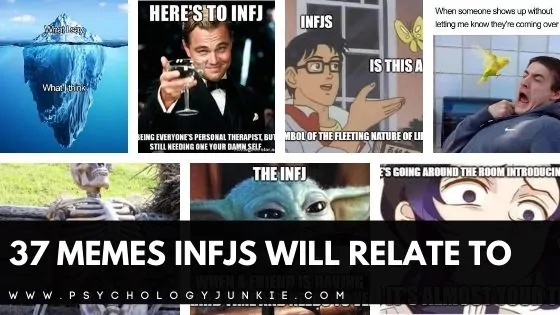
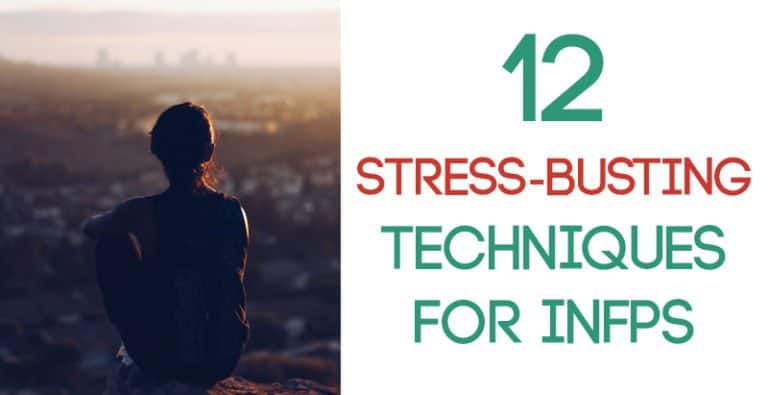
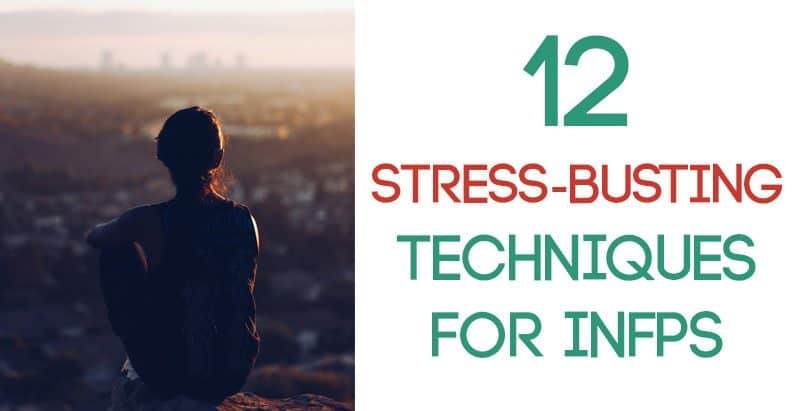


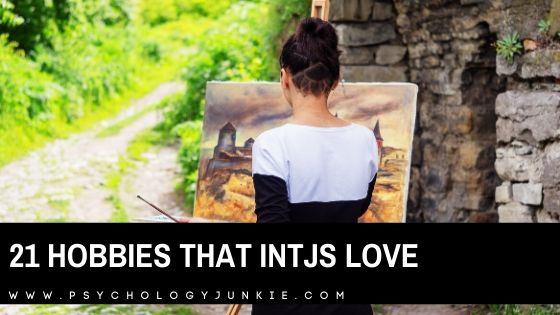
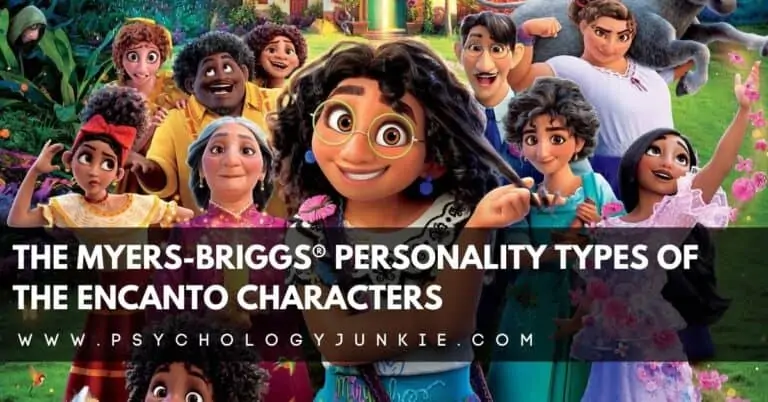
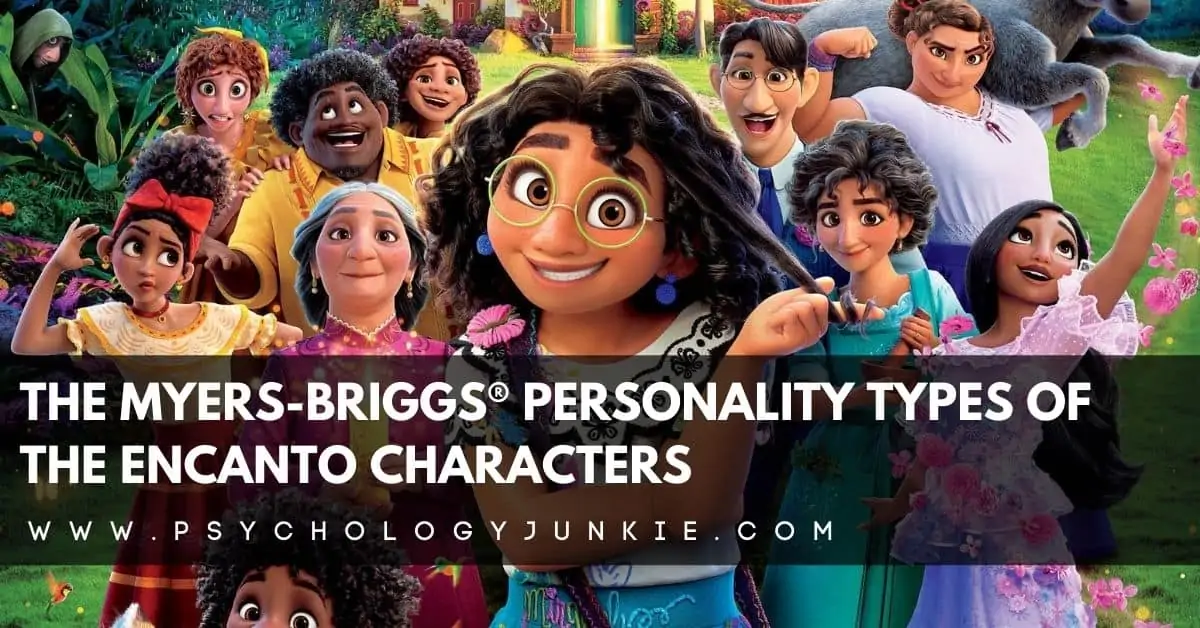


I live in Wisconsin. Few of us will be spending time outdoors, regardless of temperature because it will be cold on Thanksgiving (plus the food is inside). The only exception I know of would be people who go deer hunting, but getting cold is part of the experience for them. For proof of that assertion, please listen to the song “Da Turty-Point Buck” by Bananas At Large (a seasonal classic around here), particularly the line “Windmill blowin’ 45, temp thirty below/I was freezin’ to death, then it started to snow.” The worse the weather, the better for those hunting stories.
Turnip greens also not a thing up north for the most part. Can’t get ’em fresh this time of year unless you know someone with a greenhouse.
I can however attest to the presence of Jell-o salads at most community functions, so it’s probably correct to assume most families will have them on T-day as well.
I’m a Brit and I hate Black Friday, it’s such a fake holiday.
I can’t really comment on Thanksgiving though.
Oh my gosh! I think this solidified my thinking that I identify mostly as INFP. The murky, racist history of Thanksgiving makes me feel physically ill. Combine that with the burden of labor falling on the shoulders of women (stereotypically) while the guys watch tv and play football sickens me as well.
I do like pecan pie and expressing gratitude. But this can happen on any day!
Thank you for you thoughtful, insightful content on your blog. I’m having so much fun reading your content!
I always ended up baking half a dozen pies, cleaning the house before and after (including washing mountains of dishes), and wrangling my nieces and nephews on the day, while my older sister held court with all the guys watching football.
My perfect family get-together would have separate tables for children and adults, no tv, soothing classical music in the background, everyone doing their fair share, calm discussions of important things like art, music, and books during the meal, then board games afterward. I love the food of Thanksgiving, but have feelings about the origins…
🙋👍Susan,Once again very accurate and amazing . I came from a very toxic family .I’m a ISFP 😁a very friendly introvert .I don’t miss holidays with the toxic family at all .The added drama ,the expectations put on me , the rude comments when I spoke my truths .I have spent many holidays by myself and my pets .My grown up son usually goes to his Dad’s house which is ok with me .They are good to him .I like the peace and quiet I get by being by myself except when my son is with me .We live a peaceful quiet sane life .Thank you always for all you share with us .You are so amazing and awesome 👍🌹⛎♏🦂Beverly The friendly introvert 😁
Hi Beverly! Thank you so much for the kind words. I’m sorry that you had to deal with a toxic family and I hope you can find your own way to make these days special. Enjoying the quiet and your pets is a wonderful way to do that.
Again, thank you for the encouraging words and I’m wishing you all the best.
– Susan
These are hilarious! Thank you, and Happy Thanksgiving!